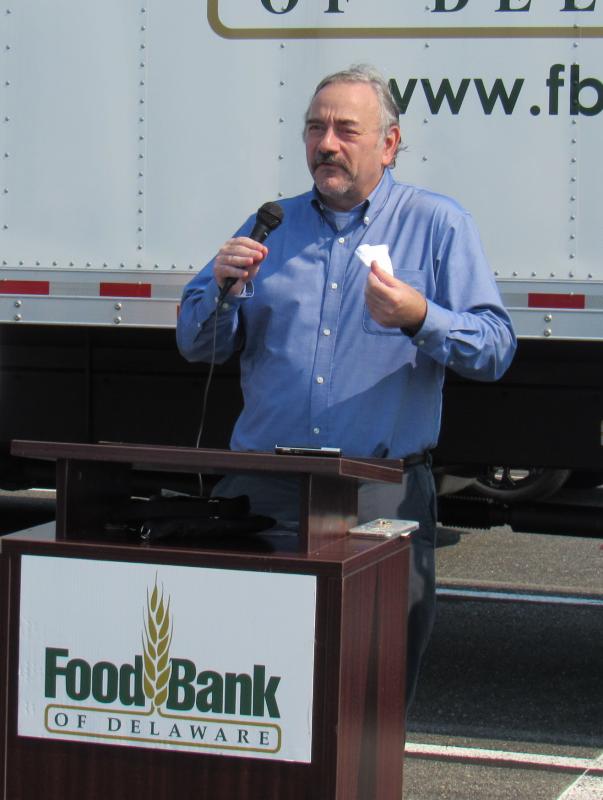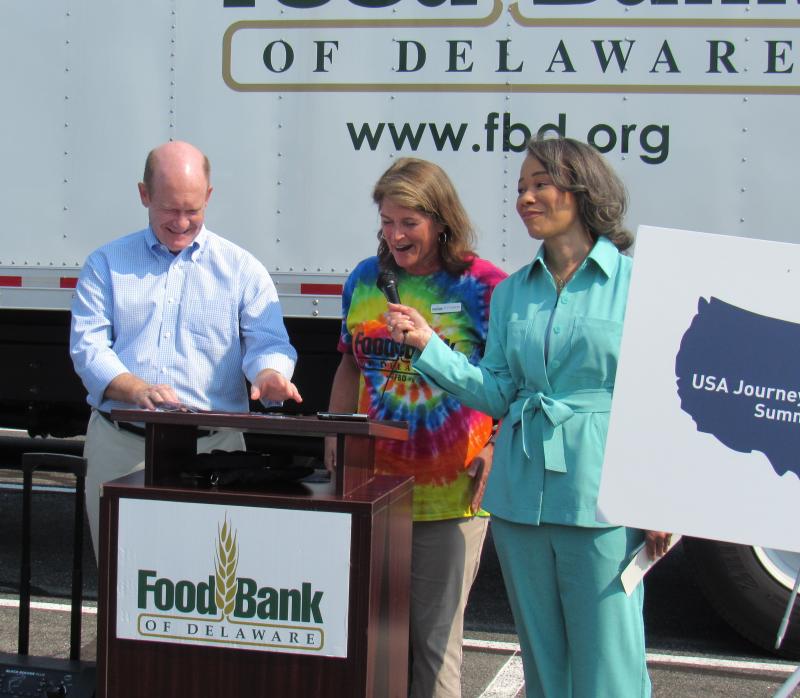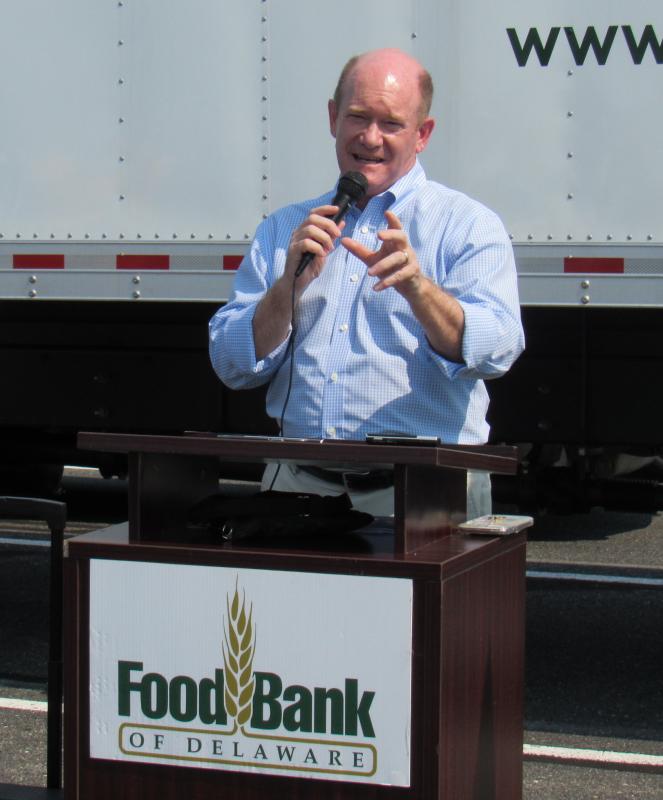Officials highlight food insecurity during visit to church distribution site
U.S. Sen. Chris Coons, U.S. Rep. Lisa Blunt Rocheter and Hunger Free America CEO Joel Berg worked to raise awareness of food insecurity by volunteering at the Food Bank of Delaware’s monthly drive-thru food distribution held July 6 at Crossroad Community Church in Georgetown.
Food Bank of Delaware President and CEO Cathy Kanefsky said the event was the organization’s 43rd large-scale mobile pantry since the pandemic began. FBD has distributed more than 21 million pounds of food since March 2020, more than twice the amount given out during a typical year, she said.
“Food insecurity is very real in our state,” Kanefsky said. “The pandemic shed a light, quite honestly, on how many of our neighbors are just one paycheck away from needing the assistance of the food bank.”
Before COVID-19 hit, about 105,000 Delawareans experienced food insecurity, a number that grew to 140,000 during the height of the pandemic, Kanefsky said. While the state is recovering, about 114,000 Delawareans, many of whom are children, are still in need of food, she said.
Hunger Free America is a nonpartisan, national nonprofit group working to end domestic hunger through a combination of advocacy and direct service. Berg said he is traveling across the country to highlight the national hunger problem, which he said existed long before the pandemic. In Delaware during 2016-18, one out of every nine residents lived in homes that couldn't afford enough food, he said.
Public policy, not charity alone, is the way to end hunger, Berg said, noting that in February 2021 the federal Supplemental Nutrition Assistance Program program aided 112,425 Delawareans, thanks to an increase in the average benefit size allowed by Congress.
“Even with the pandemic easing, hunger still ravages virtually every rural and suburban town and urban neighborhood in the nation, including throughout Delaware,” said Berg. “My goal is to energize the work to enact the public policies, including increased funding for SNAP and WIC, needed to end U.S. hunger once and for all.”
Blunt Rochester said the fight to end hunger is connected to many things, including ending poverty, strengthening the economy, and creating partnerships.
“If kids don’t eat, it’s hard to learn,” she said. “If seniors are in homes where they can't get access to food, it’s hard for them to live. If we as a country, both from an economic standpoint and a moral standpoint, don't see the significance of being fed in this country, then we don't get it.”
Coons said hunger has existed since the beginning of time, but the pandemic dramatically increased the number of hungry Delawareans; enough food is wasted to feed all residents.
“Hunger is endemic,” he said. “There are more hungry people in our state and country than we may see, than we may recognize, and than we should ever accept. As Lisa pointed out, if your children are hungry, parents can't focus. You can't work if you know your children are hungry. You can't have hope if you know your children are hungry. If you're a hungry child, you can't focus in school. If you're a hungry senior, you don't have confidence in your next day that you're loved and cared for.”
FBD Community Relations Director Chad Robinson said food distribution events are held monthly in each county with nonperishable and fresh food supplied by the U.S. Department of Agriculture and Mid-Atlantic Regional Cooperative. Pet food is also distributed, and preregistration is not needed, he said.
To learn more about Food Bank of Delaware distribution events, or to volunteer or donate, go to fbd.org.




















































